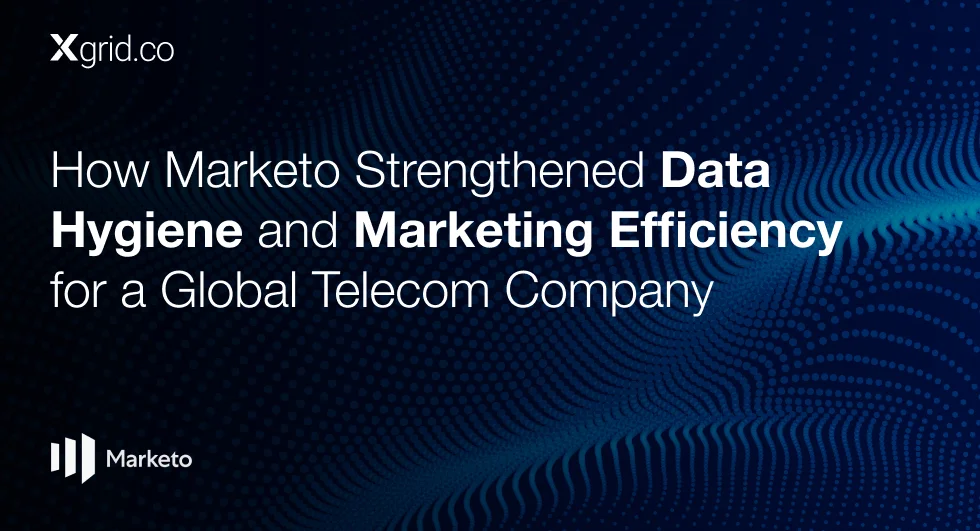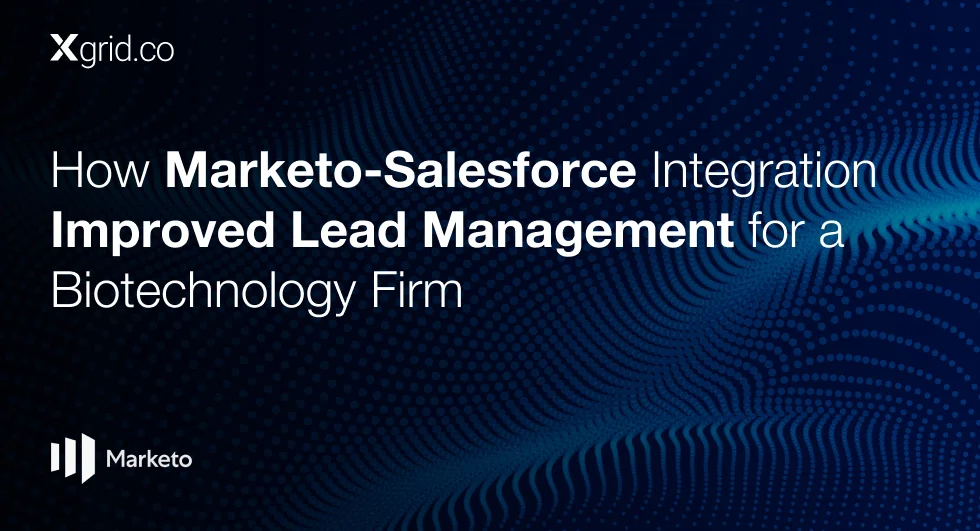Adobe’s Acquisition of Marketo: A Strategic Move with Missed Opportunities
The integration of Marketo into Adobe’s suite of marketing tools was seen as a way to strengthen Adobe’s Marketing Cloud offering, but it also introduced new challenges for users, especially those familiar with the original Marketo platform.
One of the main concerns following the acquisition has been Adobe’s product strategy, particularly in terms of supporting and developing tools like Bizible, which were included in the acquisition. “Adobe has made some weird choices,” Amy points out, reflecting on how the integration of Marketo into Adobe’s ecosystem hasn’t been as seamless as many hoped.
Bizible, a tool designed for revenue attribution, was supposed to be a game-changer, but Amy notes, “Adobe has kind of stopped supporting it. It’s fairly difficult to use, and I haven’t seen much development on it in a while.”
The missed opportunities with Bizible reflect a broader issue of product integration challenges within Adobe’s suite. While the acquisition brought new resources and potential for growth, the lack of consistent development and support for key tools like Bizible has left many users frustrated.
As Amy highlights, “They throw it in for free, but it doesn’t seem like there’s much focus on improving it.” This has led to a situation where, despite Adobe’s powerful ecosystem, some of Marketo’s most valuable features have not been fully realized.
For businesses considering Marketo post-acquisition, it’s important to weigh these integration challenges against the tool’s inherent strengths. Marketo remains a powerful solution for marketing automation and lead management, but its integration into Adobe’s broader ecosystem may not deliver the seamless experience that some users expect.
1. The Shift to HubSpot: Consulting Experience and Market Adaptation
After years of working with Marketo in corporate roles, Amy made the shift to consulting, and with that came a shift in the platforms she used. Interestingly, most of her consulting clients now use HubSpot rather than Marketo. This transition has provided her with firsthand experience in how these two platforms compare, particularly for companies of different sizes and marketing maturity.
“I’d much rather have a Salesforce and Marketo stack than a straight HubSpot stack,” Amy admits, making it clear that she still sees the value in Marketo’s powerful automation capabilities. However, she acknowledges that for smaller companies or those with less complex marketing operations, HubSpot can be a practical alternative. “HubSpot has come a long way,” she says, especially in terms of usability. HubSpot’s ease of use makes it appealing for companies that don’t have the technical resources to manage a more complex system like Marketo.
The key difference between the two platforms lies in the level of customization and control. While Marketo offers more sophisticated lead scoring and automation options, HubSpot is easier to set up and manage, particularly for businesses without dedicated marketing operations teams. “I have clients using HubSpot, and I manage their instances,” Amy explains.
For these clients, the simplicity of HubSpot outweighs the benefits of Marketo’s more advanced features, especially when paired with tools like Salesforce for CRM integration.
This shift toward HubSpot in consulting reflects a broader trend in the marketing automation industry, where businesses are increasingly seeking solutions that balance power with simplicity. HubSpot’s ability to cater to smaller teams or companies without a full marketing operations department makes it an attractive option, but for larger enterprises, the depth of Marketo’s capabilities remains unmatched.
2. The Decline of Eloqua: Oracle’s Acquisition and Its Impact
Eloqua, once a major player in the marketing automation space, has seen a significant decline in popularity, especially among non-enterprise businesses. Much of this can be traced back to Oracle’s acquisition of the platform. While Eloqua remains a powerful tool, its complexity and the additional steps required to complete tasks make it impractical for many companies.
“Eloqua was incredibly powerful, but the amount of steps to do things made it complicated,” Amy recalls from her time using the platform. Before Oracle’s acquisition, Eloqua was one of the two major marketing automation tools alongside Marketo. However, after the acquisition, the platform became even more cumbersome, limiting its appeal to all but the largest enterprises with the resources to manage its complexity.
Amy’s experience with Eloqua highlights a key issue for businesses considering marketing automation tools: the trade-off between power and usability. “You couldn’t take this tool and go to a junior marketer and say, ‘Go run an email campaign.’ It was far too complicated for that,” she explains.
This is in stark contrast to platforms like Marketo and HubSpot, which are designed to be more intuitive and accessible to less experienced marketers.
The decline of Eloqua post-Oracle acquisition also speaks to a broader issue in the marketing technology landscape—how acquisitions can sometimes hinder, rather than help, the development of a tool.
Amy notes that Eloqua’s complexity has rendered it less competitive in the mid-market and SMB space, where companies are looking for solutions that don’t require large, dedicated marketing operations teams. “Not too many people use Eloqua since Oracle bought it,” she adds, reflecting on how the platform has fallen out of favor.
For businesses considering their marketing automation options, Eloqua may still be a viable choice for large enterprises with the technical resources to support it.
However, for mid-market businesses and smaller enterprises, the platform’s complexity and Oracle’s focus on enterprise-level solutions make it less practical compared to more user-friendly tools like Marketo and HubSpot.
3. Conclusion: Navigating the Marketing Automation Landscape
The marketing automation landscape is constantly evolving, and businesses must carefully consider their options when choosing a platform. Adobe’s acquisition of Marketo brought new resources but also introduced challenges in product integration and support, particularly with tools like Bizible.
On the other hand, HubSpot’s growth and usability improvements have made it a strong contender for smaller businesses, though Marketo remains the go-to solution for more complex needs.
Eloqua’s decline post-Oracle acquisition highlights the risks of choosing a platform that, while powerful, may not be suitable for companies without the technical expertise to manage it. As Amy’s experience shows, choosing the right marketing automation tool depends on a company’s size, technical resources, and marketing complexity.
Whether it’s Marketo’s robust lead scoring, HubSpot’s simplicity, or Eloqua’s power, businesses need to strike the right balance between functionality and usability to drive successful marketing automation strategies.
Downloads
Article (PDF-276 KB)MOST POPULAR INSIGHTS
- How Marketo Strengthened Data Hygiene and Marketing Efficiency for a Global Telecom Company
- How Marketo-Salesforce Integration Improved Lead Management for a Biotechnology Firm
- How a Tech Company Used Marketo to Refine ABM Strategies for Sales Engagement
- How Marketo Campaigns Were Streamlined with Templates and Tokens
- How Marketo Solidified Marketing Insights with Custom Attribution Models
Related Articles
Related Articles

Established in 2012, Xgrid has a history of delivering a wide range of intelligent and secure cloud infrastructure, user interface and user experience solutions. Our strength lies in our team and its ability to deliver end-to-end solutions using cutting edge technologies.
OFFICE ADDRESS
US Address:
Plug and Play Tech Center, 440 N Wolfe Rd, Sunnyvale, CA 94085
Dubai Address:
Dubai Silicon Oasis, DDP, Building A1, Dubai, United Arab Emirates
Pakistan Address:
Xgrid Solutions (Private) Limited, Bldg 96, GCC-11, Civic Center, Gulberg Greens, Islamabad
Xgrid Solutions (Pvt) Ltd, Daftarkhwan (One), Building #254/1, Sector G, Phase 5, DHA, Lahore




